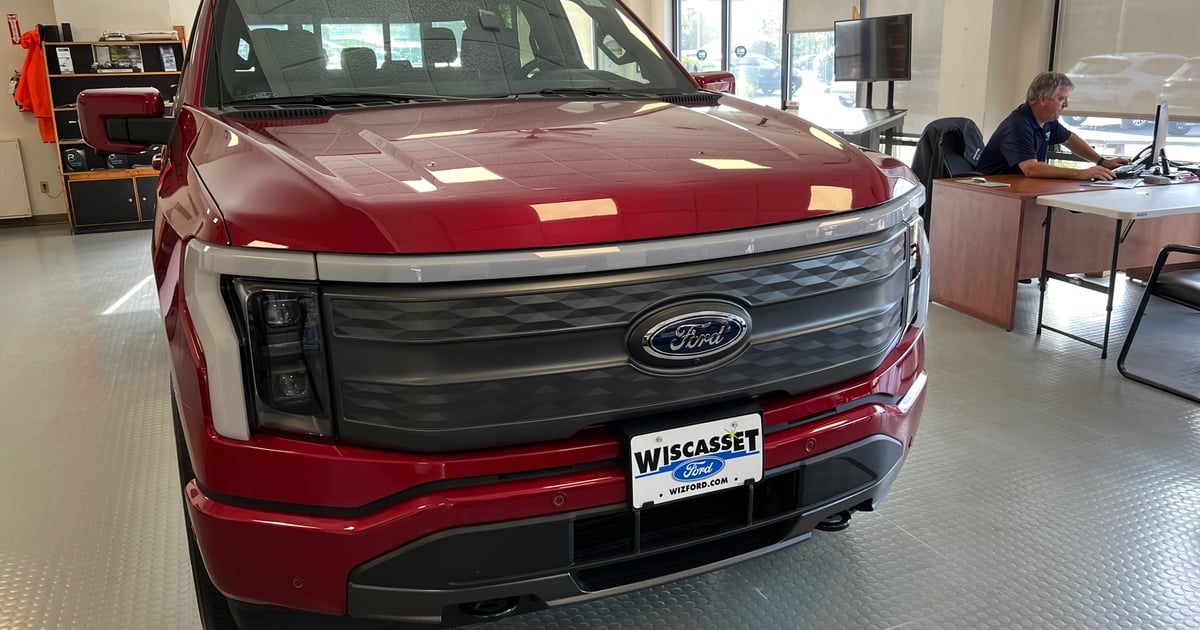
Ford Motor Co. is facing legal challenges to its dealer certification program for electric vehicles from retailers in three states who argue that the plan violates franchise laws.
A group of 27 dealerships in Illinois filed a protest with the state’s motor vehicle review board Friday, and four dealers in New York filed suit against the automaker earlier this week. Those actions come after the Arkansas Automobile Dealers Association in October filed a formal complaint against the manufacturer with that state’s motor vehicle commission.
They are believed to be the first legal actions taken against Ford as opposition to the certification program mounts. Dealer associations in at least 14 states have written letters to Ford calling for changes, and earlier this week the plans drew rebukes from U.S. Sen. Richard Blumenthal, D-Conn., and some state lawmakers.
Ford had set a Friday deadline for dealers across the U.S. to decide whether they will invest up to $1.2 million on chargers, training and upgrades the company is requiring for them to sell EVs after next year. Dealers who want to sell EVs also have to agree to new sales standards aimed at overhauling the retail experience, including setting nonnegotiable prices.
The New York lawsuit says Ford’s EV certification program includes “unlawful franchise modifications, unfair pricing requirements, margin reductions, and unlawful allocation systems.”
Under New York law, such a suit could trigger an automatic stay of Ford’s certification program there until a judge rules on the matter, according to Rich Sox, one of the attorneys representing the dealers. Clarification on whether the program will be paused could come within a few months, Sox told Automotive News.
The New York plaintiffs argue that the provision in the program barring dealers from selling future EVs if they don’t invest in one of two certification tiers is unlawful.
“Every dealer under the current franchise agreement has a right to every Ford vehicle manufactured with that nameplate on it, to include the newest EVs,” Sox said in an interview. “They have a right to their fair allocation of those vehicles based on their market size, sales history, etc. This is about making sure all dealers have access to EVs and not being pigeonholed into one of three categories the program arbitrarily created.”
Ford, in an emailed statement, said the certification program “is consistent with all relevant laws” but declined further comment because of the pending litigation.
Dealers who don’t want to get the top level of certification can choose to spend $500,000 but would be allowed to sell no more than 25 EVs a year. Ford has noted that the investment figures could vary based on federal and state incentives.
Retailers who do not participate would be limited to selling only gasoline-powered models and hybrids.
“A dealer that loses the ability to sell and service EVs — the future of the automobile industry — will soon find itself unprofitable and eventually out of business,” the plaintiffs wrote in the New York lawsuit.
The Illinois protest and Arkansas complaint raise similar points.
“Ford is intentionally withholding new and potentially profitable products from dealers, to which they have an existing contractual and statutory right, unless dealers accede to the extreme, unreasonable, and anti-franchise conditions on which Ford is insisting,” the Illinois dealers said. “To be sure, there is nothing ‘voluntary’ about Ford’s unlawful take-it-or-leave-it program.”
The Arkansas complaint argues the costs are excessive. Ford responded last month to the Arkansas complaint, disputing allegations that the program is illegal as “meritless.”
“AADA is incorrect that the voluntary program extends beyond what is reasonable,” Ford lawyer Steven Kelso wrote. “Rather, the voluntary program sets out what is reasonable and minimally necessary for the dealers to effectively sell and service EVs.”
For dealers who do not opt into the program by Friday’s deadline, Ford has said it will provide another opportunity to do so in 2025. The automaker has declined to say how many dealers have agreed to participate so far.
“Ford intends to conquest customers through its new EV business — an opportunity for the company and dealers to grow together,” Ford said in a statement Friday. “To do so, Ford and its dealers must take reasonable steps to better serve our existing and future EV customers to compete against startups and legacy OEMs in a rapidly changing market.”